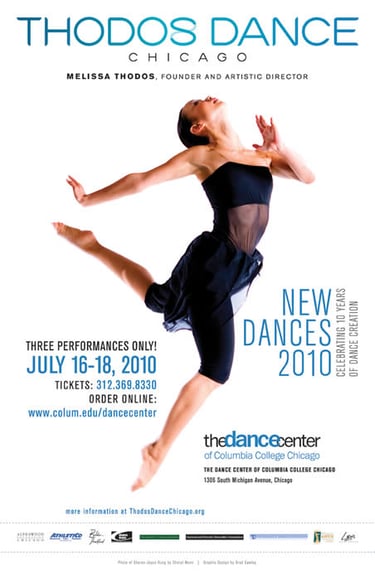Yes or No: College Dance Program
Demystifying the specifics
5/23/20243 min read


As we approach another graduation season, I dedicate this post to those interested in college dance programs. It's essential to recognize that, like any industry, the dance and performing arts field is constantly evolving. The opinions I offer here stem from my experiences as a professional dancer and educator, having graduated more than a decade ago. I'll keep this fairly concise, though I may delve deeper in future posts, as the topic is extensive and warrants thorough exploration.
With over a decade of experience as a dance educator and mentor, coupled with my professional dance background, I've written countless letters of recommendation, assisted with video audition materials, and guided students toward decisions aligned with their career aspirations. My perspectives have always been grounded in realism, acknowledging the importance of preparing for life beyond dance.
To put things into perspective, on their website, Juilliard School's annual tuition for the 2024-2025 year is USD $54,400 before other fees (housing, meal plans, books, orientation etc).
"I want to major in dance" is a common sentiment I hear from my students as Fall approaches, particularly from sophomores and juniors navigating the stress of standardized tests, dance competitions, and often unhelpful meetings with college counselors focused solely on metrics. It's a familiar annual cycle.
For context, I graduated from the University of California Irvine with a BFA in Dance Performance and a BA in Economics, completing both degrees in four years. Following graduation, I moved to Chicago to pursue a professional dance career, an endeavor that coincided with the 2008 economic crisis. My dual education in the performing arts and liberal arts proved invaluable during that tumultuous time.
When students express their intent to pursue dance, I pose three fundamental questions:
1. What do you intend to do with your dance education?
2. Are you seeking to dance professionally, receive a comprehensive dance education encompassing more than just physical training, or both?
3. What are your goals for your college dance education?
While many students aspire to continue dancing in college, I often caution against solely pursuing dance at a cost of $40-60k per year. I advocate for considering a double major, leveraging the breadth of subjects offered in dance programs, which extend beyond technique classes to encompass choreography, music, kinesiology, dance history, and more. At UCI, for instance, liberal arts education requirements broadened my academic horizons, reinforcing the value of a holistic education.
For prospective dance students, I recommend researching program offerings, faculty expertise, industry partnerships, job placement rates, and alumni networks. Approach the decision with a career-oriented mindset, evaluating the program's potential to prepare you for professional success.
Consider also the option of minoring in dance while pursuing a more demanding major such as engineering or business. Align your academic pursuits with your broader career goals, whether in education, physical therapy, film production, or arts administration. Recognize the transferable skills inherent in dance training.
A college dance program can provide invaluable networking opportunities, access to resources, and exposure to industry events and programs. However, it's essential to distinguish between pursuing a professional dance career and pursuing an education in dance. While some companies may require a college degree, many do not, so tailor your educational path to your career aspirations accordingly.
Navigating any career path post-COVID presents challenges, particularly in an industry reliant on live performance and communal experience. While the arts sector faces financial uncertainties, it's crucial to approach investments in dance education with realism. While a dance degree offers enrichment, complementary disciplines like economics can provide additional tools for navigating societal and economic shifts.
There's much more to explore on this topic, but I'll respect your attention span for now. Stay tuned for further insights in upcoming posts.
I hope this serves as a helpful guide!
S.
Courtsey of Thodos Dance Chicago
